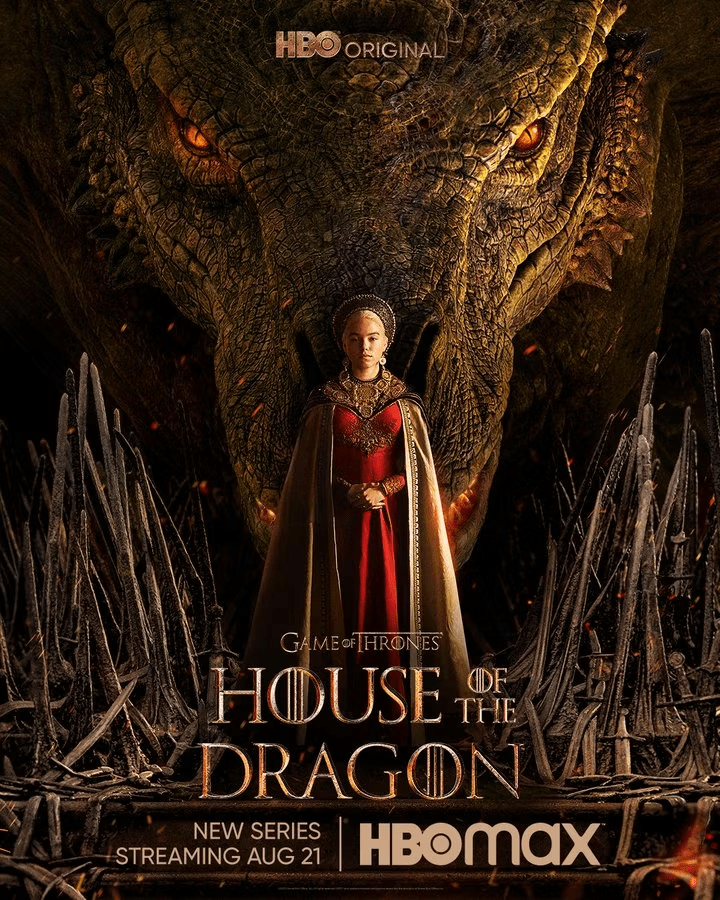
House of the Dragon Season 2 Review: A Harrowing Exploration of War’s Destructive Path and the Futility of Heroism
Fiona Nanna, ForeMedia News
6 minutes read. Updated 4:41PM GMT Mon, 5August, 2024
In the latest season of House of the Dragon, the bleakness of war takes center stage as the series embarks on a grim exploration of the human cost of conflict. The show, a prequel to the iconic Game of Thrones, plunges viewers into a narrative where hope is scarce, and heroism is a distant memory.
The finale of this season resonates with Ser Cristen Cole’s somber reflection: “Perhaps all men are corrupt… and true honour is a mist that melts in the morning.” This philosophy underscores a season where the primary focus was on the devastating impact of war, painting a dismal picture of the characters’ relentless march towards annihilation.
While the marketing campaign for House of the Dragon season 2 pushed audiences to align with either Team Green or Team Black, the show itself seems to undermine these factions, offering no clear heroes. The final episode illustrates a season marred by sacrifice—be it the hopeful dragonriders, firstborn sons, or the very principles that once guided the characters. The low bar for ethical behavior in Westeros is barely crossed, as the characters remain ensnared in mutual destruction.
In the tradition of Game of Thrones, where moral ambiguity was a hallmark, House of the Dragon follows suit. However, it diverges by eliminating even the semblance of “good” characters. The season’s pivotal moment comes when Rhaenys Targaryen (Eve Best), the Queen Who Never Was, meets a tragic end, emphasizing the absence of rewarding heroism.
As the narrative unfolds, Team Black’s increasingly fanatic exiled queen, Rhaenyra Targaryen (Emma D’Arcy), transitions from mourning the brutal death of a child to orchestrating horrific acts of violence in her quest for dragon riders. Concurrently, Team Green’s Dowager Queen Alicent Hightower (Olivia Cooke) is rendered powerless, overshadowed by a succession of disappointing men, including some of her own progeny.
Rhaenys’s prophetic words in the season finale—”Soon they will not even remember what it was that began the war in the first place”—capture the essence of this season’s narrative. This foresight aligns with the source material, Fire and Blood, suggesting a self-perpetuating cycle of destruction. The show mirrors its predecessor by focusing on the struggle for the Iron Throne, but it ultimately presents a long, painful descent into war’s inherent nihilism.
The prequel’s predetermined ending, as revealed through the events of Game of Thrones, indicates that the Targaryen house is doomed to self-destruction, along with its dragons. This season starkly portrays a conflict driven by misunderstanding, power thirst, and vengeance, fought with devastating weapons. The dragons, symbolizing nuclear warfare, should ideally act as deterrents but instead serve as instruments of further devastation.
In the final analysis, the series depicts a relentless battle where men are mere fodder, and strategies and fortresses are powerless against the might of dragons. This was evident in the Battle of Rook’s Rest, where both sides lost dragons and men, highlighting the futility and destruction of their conflict. Daemon’s visions of future wars serve as a reminder of the ongoing cycle of violence, encapsulating the series’ portrayal of a war that seems destined to never end.
For more in-depth analyses and updates on House of the Dragon and other entertainment news, visit Entertainment Weekly and Variety.

